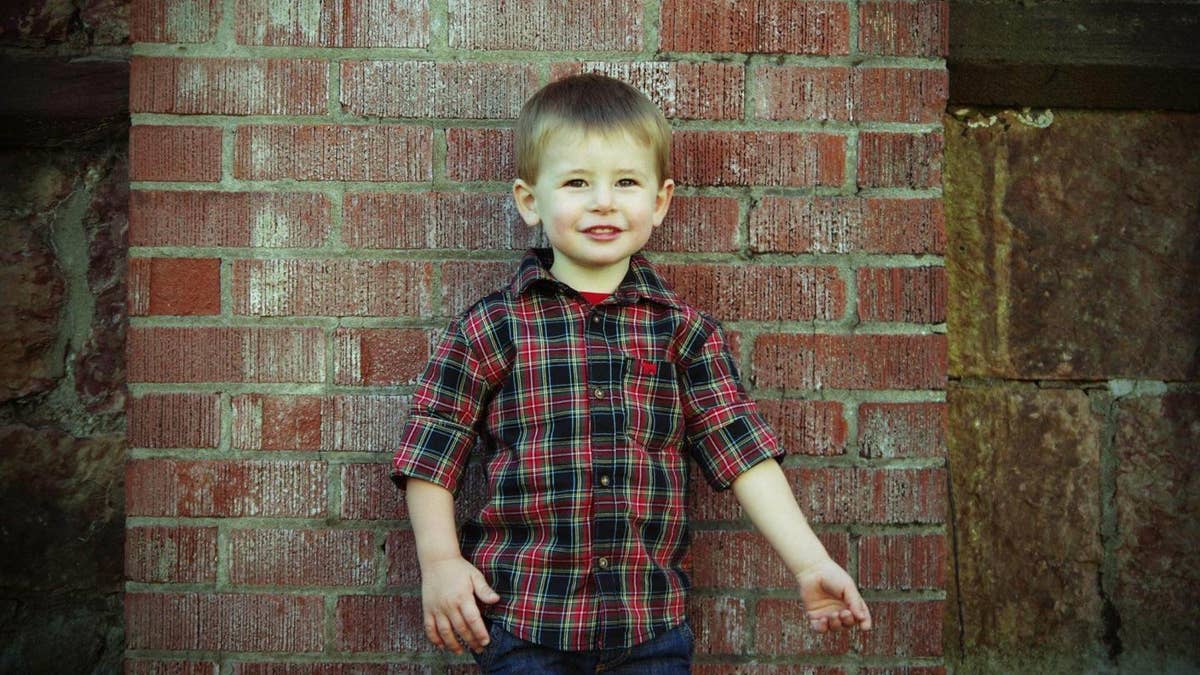
Tucker Roussin, 3, is the first successful survivor of fetal surgery for a life-threatening tumor connected to his heart. Fetal medicine experts at Children's Hospital of Philadelphia successfully removed this tumor. (Children's Hospital of Philadelphia)
In a medical first, doctors at The Children’s Hospital of Philadelphia (CHOP) successfully removed a tumor from an in-utero fetus’ life, resulting in a healthy birth. The boy, who was at 24 weeks of gestation at the time of surgery, is now 3 years old.
Tucker Roussin, now a preschooler, was diagnosed with an intrapericardial teratoma, an extremely rare, rapidly growing tumor that can go undetected during the fetal period, according to a news release. The tumor grows from the pericardium, the sac that surrounds the heart, and is lethal if untreated. Currently, doctors drain pericardial fluid to hope to allow the fetus to grow to a viable gestational age, then perform surgery to remove the tumor shortly after delivery. However, the tumor can grow rapidly and fluid around the heart can inflict dangerous pressure, both of which can disrupt normal fetal circulate and cause death.
In addition to Roussin’s case, the CHOP team also successfully performed tumor removal surgery on a fetus at 31 weeks gestation through a partial delivery through the mother’s uterus while the baby remained connected to the placenta.
"We have shown that we can accurately diagnose and provide a prognosis for this rare condition in utero, as well as perform fetal surgery," co-study leader Dr. Jack Rychik, MD, director of the Fetal Heart Program at CHOP, said in a news release.
The team also followed four cases of intrapericardial teratoma in which fetal surgery was not performed. All four died, in some cases because the referral was too late and the fetuses were too sick to benefit from the intervention.
"Managing this type of teratoma presenting before birth is a challenge, but we show that survival with good outcome may be possible in some patients," Rychik said in the news release. "It was the ability to bring so many different disciplines to the table that made us confident enough to take the leap to offer in-utero surgery on a fetal heart as a viable option.”
The fetal surgery is a breakthrough and an innovation in care for families who receive the diagnosis, study authors noted.
“We expect that Tucker should be able to lead a full life,” Dr. Holly Hedrick, lead surgeon for Roussin’s case, said in a blog post earlier this year. “What we learn will inform our ongoing efforts to develop new treatments for children with all types of birth defects, both common and rare. We’ve learned so much from Tucker — and he still has much to teach us.”








































